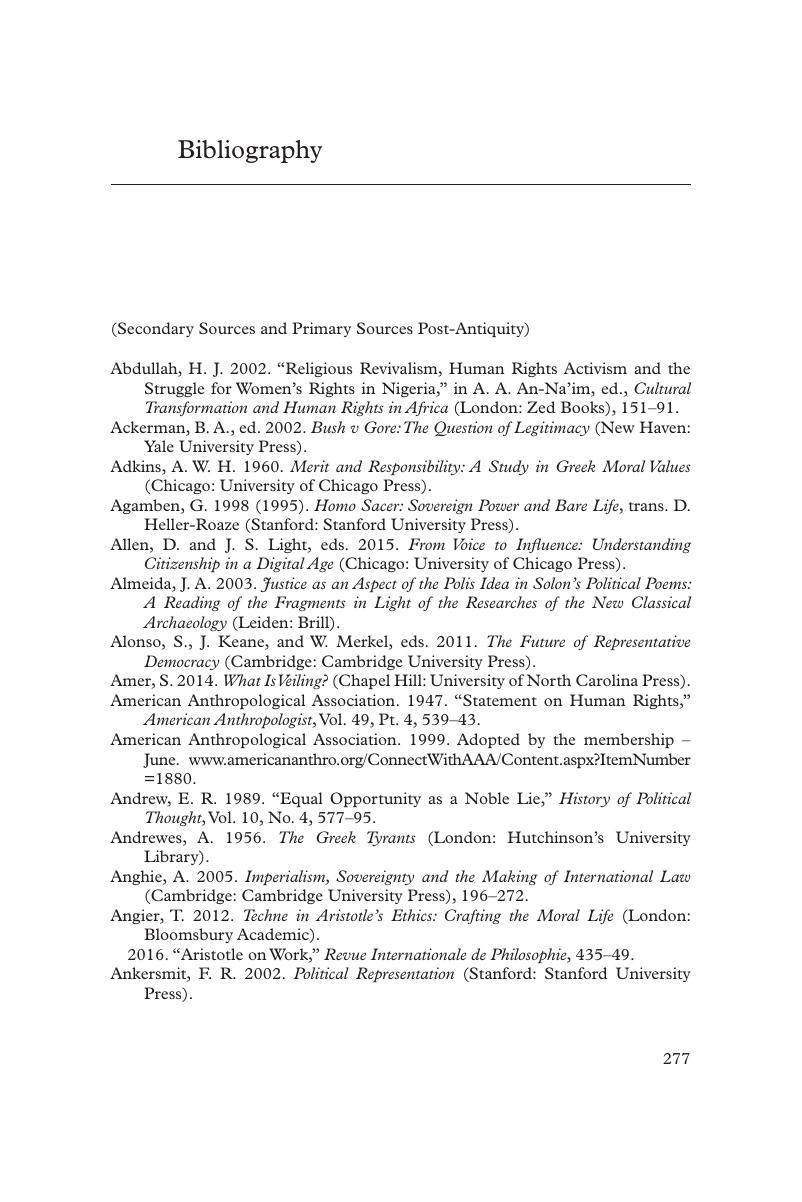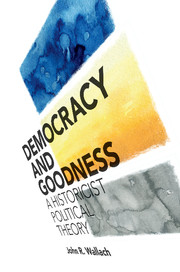Book contents
- Democracy and Goodness
- Democracy and Goodness
- Copyright page
- Dedication
- Contents
- Preface
- Acknowledgments
- Introduction
- 1 Historicizing Democratic Ethics
- 2 Democracy and Virtue in Ancient Athens
- 3 Representation as a Political Virtue and the Formation of Liberal Democracy
- 4 Civil Rightness: A Virtuous Discipline for the Modern Demos
- 5 Democracy and Legitimacy: Popular Justification of States Amid Contemporary Globalization
- 6 Human Rights and Democracy
- Conclusion: Political Action and Retrospection
- Bibliography
- Index
- References
Bibliography
Published online by Cambridge University Press: 19 January 2018
- Democracy and Goodness
- Democracy and Goodness
- Copyright page
- Dedication
- Contents
- Preface
- Acknowledgments
- Introduction
- 1 Historicizing Democratic Ethics
- 2 Democracy and Virtue in Ancient Athens
- 3 Representation as a Political Virtue and the Formation of Liberal Democracy
- 4 Civil Rightness: A Virtuous Discipline for the Modern Demos
- 5 Democracy and Legitimacy: Popular Justification of States Amid Contemporary Globalization
- 6 Human Rights and Democracy
- Conclusion: Political Action and Retrospection
- Bibliography
- Index
- References
Summary

- Type
- Chapter
- Information
- Democracy and GoodnessA Historicist Political Theory, pp. 277 - 302Publisher: Cambridge University PressPrint publication year: 2018



